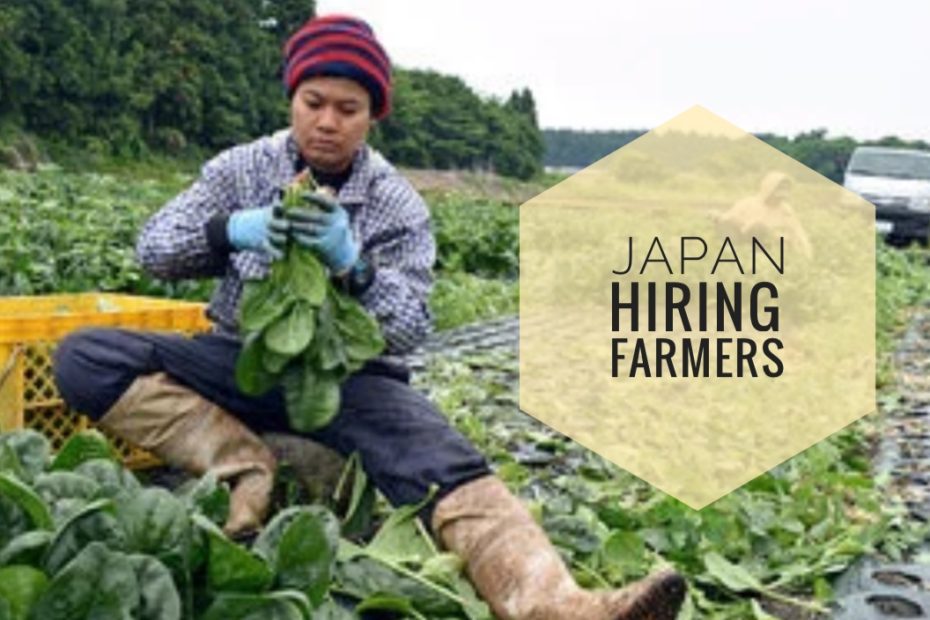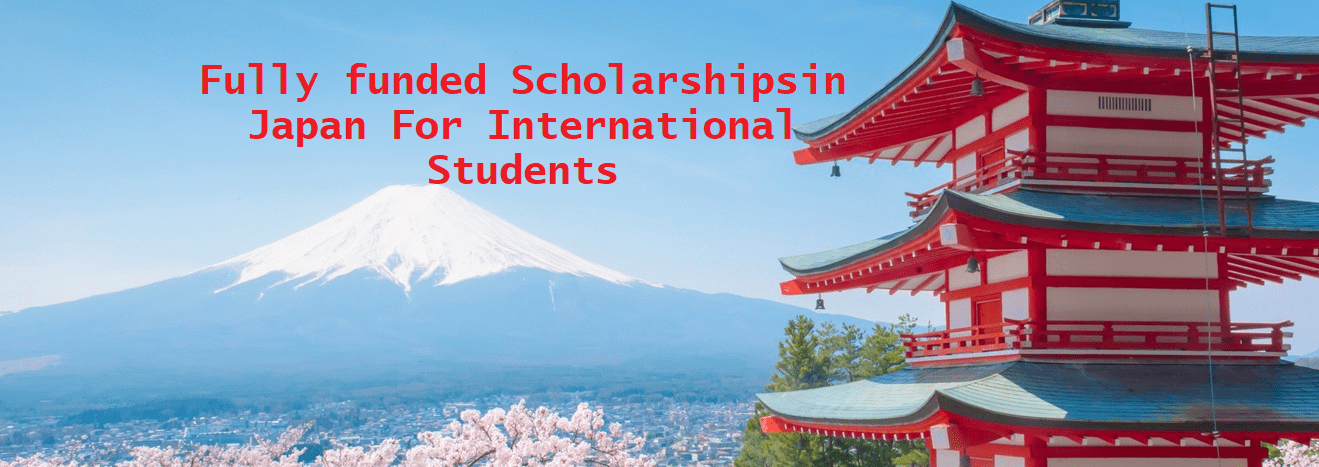Japan is a country that has a long and rich history. It is also a country with a population of over 127 million people. This population growth has led to an increased demand for agricultural products. As a result, many farmers in Japan are looking for ways to find new employees.
Visa-sponsored Japanese farming workers are special individuals who are granted visas to work in Japan as agricultural laborers. These visas are granted based on the employer’s need for the workers and the workers’ ability to provide quality labor.
If you’re looking for a unique way to explore Japan and sample its culture, there’s no better way than by taking a Visa sponsored Japanese farming job.
With so many people looking for ways to get their feet wet in the Asian country, now is the perfect time to get started. Not only will you have the opportunity to experience Japan from the ground up, but you’ll also be helping to support local farmers and food production.
What are the Different Types of Farming Jobs in Japan?
There are a variety of farming jobs available in Japan, depending on your skills and experience.
Most Japanese farmers work in agriculture, which includes growing crops and raising livestock. You can find farming jobs in cities and rural areas, but the most common type of job is agricultural labor hiring, which is usually through migrant or seasonal workers agencies.
Farming jobs in Japan can be very rewarding, both financially and emotionally. If you have a degree in agriculture or related fields, you may be able to find a position with more responsibility and pay than agricultural labor hiring leads.
Some of the common Japanese farming jobs for foreigners include:
- Rice Farming (Tanbo Gyo): Rice is a staple food in Japan, and rice farming plays a significant role in the country’s agricultural sector. Rice farmers cultivate paddy fields, engage in planting and harvesting rice crops, and manage irrigation systems. It is a labor-intensive job that requires knowledge of rice cultivation techniques and machinery operation.
- Vegetable Farming (Yasai Nogyo): Vegetable farming is another prominent sector in Japan’s agriculture industry. Farmers cultivate a wide range of vegetables, including leafy greens, root vegetables, and various seasonal crops. This type of farming involves planting, nurturing, and harvesting vegetables while ensuring proper pest control and irrigation management.
- Fruit Farming (Kajitsu Nogyo): Japan is known for its high-quality fruits, such as apples, peaches, grapes, and citrus fruits. Fruit farmers specialize in cultivating and harvesting these fruits, often utilizing advanced techniques to ensure the production of premium-quality produce. They may also engage in pruning, grafting, and managing fruit orchards.
- Tea Farming (Cha Nogyo): Japan has a rich tea culture, and tea farming is a significant agricultural activity. Tea farmers cultivate and harvest tea leaves, primarily for the production of green tea. This type of farming requires expertise in tea plant cultivation, careful harvesting, and processing techniques to maintain the quality and flavor of the tea leaves.
- Livestock Farming (Chikusan Nogyo): Livestock farming involves raising animals for meat, dairy, and other animal products. In Japan, livestock farming includes raising cattle, pigs, poultry (chickens, ducks), and sheep. Livestock farmers are responsible for animal care, feeding, breeding, and ensuring proper hygiene and welfare practices.
- Dairy Farming (Nyugyu Nogyo): Dairy farming involves raising cattle for milk production. Dairy farmers manage the health and nutrition of cows, milk production, and processing. They may also be responsible for maintaining milking equipment and ensuring milk quality and hygiene standards.
- Mushroom Farming (Kinoko Soko): Mushroom farming is a specialized sector in Japan’s agriculture industry. Farmers cultivate a variety of mushrooms, including shiitake, maitake, and enoki mushrooms. Mushroom farmers create the ideal growing conditions, manage mushroom logs or beds, and harvest the mushrooms at the right maturity.
- Flower Farming (Hana Nogyo): Flower farming involves cultivating and harvesting flowers for various purposes, including cut flowers, ornamental plants, and flower bulbs. Flower farmers specialize in growing different types of flowers, managing greenhouse environments, and providing proper care to ensure healthy and vibrant blooms.
- Organic Farming (Yuki Nogyo): Organic farming focuses on sustainable and environmentally friendly agricultural practices. Organic farmers follow specific guidelines and restrictions to produce crops without the use of synthetic pesticides, fertilizers, or genetically modified organisms (GMOs). They prioritize soil health, biodiversity, and natural pest control methods.
- Agricultural Research and Development: This sector involves agricultural scientists, researchers, and technicians who work on developing new farming techniques, improving crop varieties, enhancing pest management strategies, and advancing agricultural technology. These professionals contribute to the innovation and sustainability of Japan’s agriculture industry.
What are the Requirements for Visa Sponsored Japanese Farming Jobs?
The Japanese government offers a number of visa sponsorship programs to foreigners looking to work in the country’s agricultural sector. Requirements for each program vary, but all participants must be able to provide proof of a valid job offer and have a minimum amount of experience working in agriculture.
Furthermore, agricultural visas are also typically only granted for one-year periods, so applicants must be prepared to renew their visas if they are successful in securing the position they were hired for.
Other common requirements include:
- having a valid visa
- being able to speak and understand Japanese
- having a clean criminal record
- passing a health check
How to Find Japanese Farming Jobs with Visa Sponsorship
If you want to live and work in Japan as a foreigner, the best way to do it is through a visa sponsorship program. There are many farming jobs available through these programs, but it’s important to be aware of the requirements so you don’t get rejected.
There are several ways to find out if your farming experience qualifies you for a Japanese visa sponsorship program. The most direct way is to speak to your nearest embassy or consulate about potential visa sponsorship options.
Would You Like To Apply For This Jobs/Sponsorship?
Enter Your Email Address HERE & You Will Receive a Notification About Your Application. If it shows "Subscribed" CLICK HERE to follow on Telegram for updatesAnother option is to search online for “Visa Sponsored Farming Jobs in Japan” or similar keywords – this will provide a wide range of options and resources specifically tailored to helping foreign farmers apply for visas in Japan.
Finally, you can contact agricultural companies in Japan and inquire directly. Many agricultural companies in Japan offer visa sponsorship services directly to their employees, so it’s worth checking out.
What are the Benefits of Japanese Farming Jobs?
There are a number of benefits to holding a Japanese farming job. Some of the main benefits of Japanese farming jobs include the following:
- Immensely diverse and varied job opportunities: Japanese farming jobs offer a great deal of variety, giving job seekers the opportunity to work in a number of different areas.
- Good packages and benefits: Japanese farming jobs typically offer excellent packages and benefits such as pensions and health insurance.
- Long-term employment: Most Japanese farming jobs are long-term, meaning holders can count on steady work over time.
- A steady income. Japanese farming jobs are usually relatively stable, with pay that tends to be consistent from month to month. This makes them a good option for people who are looking for long-term financial stability.
- The opportunity to work in a comfortable environment. Japanese farming jobs typically involve working on well-maintained farms with modern facilities. This means that workers will often be able to enjoy a comfortable lifestyle while they’re working.
- The ability to stay close to family. Many Japanese farming jobs offer excellent opportunities for workers to maintain close ties with their families. This can be especially beneficial for people who have children who may be living in different parts of the world.
How to Apply for Japanese Farming Jobs
There are various visa-sponsored Japanese farming jobs that you can apply for. The most common way to apply for a Japanese farming job is through a staffing agency. There are many staffing agencies that can help you find a Japanese farming job in your area.
Another way to apply for a Japanese farming job is to contact the Japanese embassy or consulate in your country. They may have information on how to apply for a Japanese farming job in your area.
However, you must meet the requirements of a particular job before you can begin the application process. To start the application process, you will need to contact the relevant agency in Japan. Once you have contacted them, they will send you an application form which you will need to complete.
Once you have completed your application form and documentation, you will need to submit them to the agency in Japan. This will usually be done through the mail.
Conclusion
If you’re looking for a visa-sponsored Japanese farming job in the next two years, now is the time to start your search. According to recent reports, there are plenty of opportunities available, and many companies are already hiring workers.
Whether you’re an experienced farmer or just starting out, these jobs might be a good fit for you. Keep in mind that the requirements vary depending on the company you apply to, so be sure to do your research before applying.







Am interested
Am interested in this opportunity to work in the farm,I can fit in any area as far as agricultural job is concern.